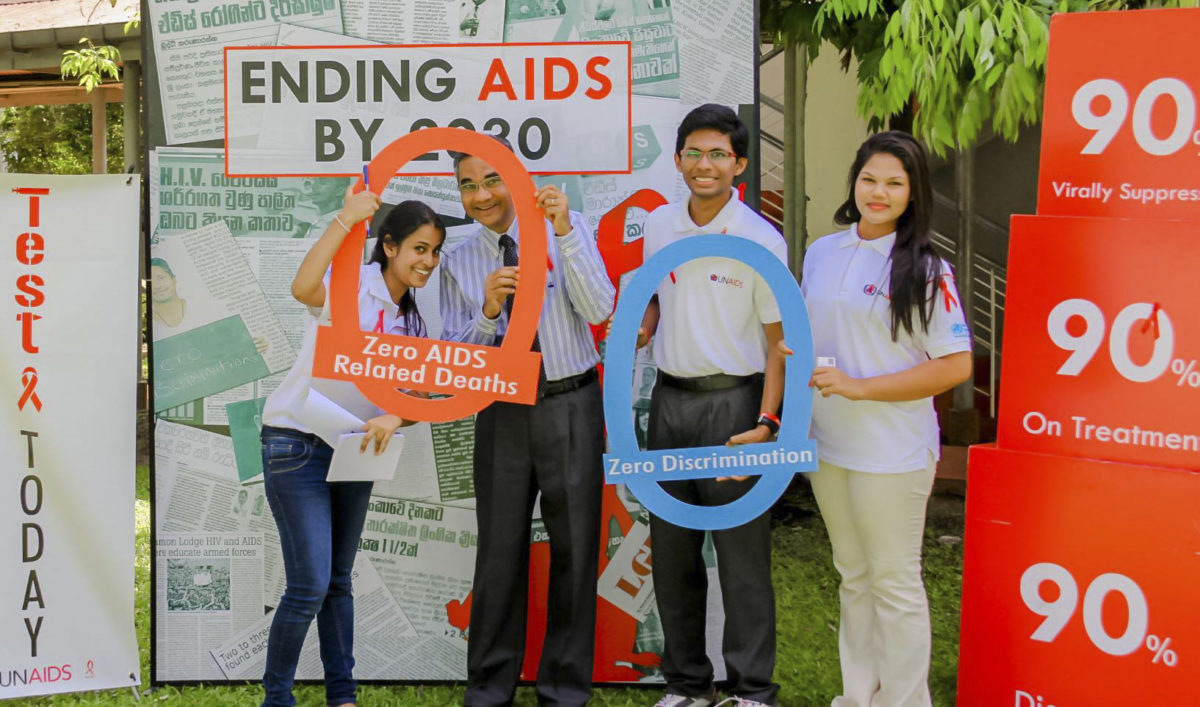He is among 60 recipients of Young Leaders Award in the Commonwealth
LANKAREPORTER.COM Sri Lanka’s Rakitha Malewana has been selected as a recipient of prestigious Queen’s Young Leaders Award which will be presented by Queen Elizabeth II next year.
Rakitha is using his medical research expertise and community work to pioneer a new HIV nano-vaccine, and to encourage more young people to engage in scientific innovation.
Rakitha first began working with people affected with HIV/AIDS in 2011, when he started visiting slum areas to teach science, maths and English to the children of people living with the disease.
In 2015, Rakitha co-founded United Youth Consortium to raise awareness of sexual reproductive health issues, and provide support and counselling to families living with HIV.
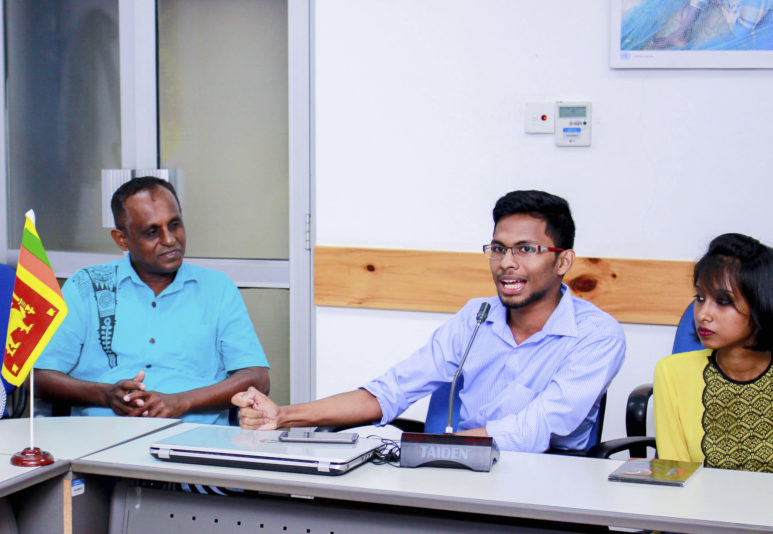
” At first, I went to Colombo slum areas to teach Science, Mathematics and English to the kids of HIV positive parents. The journey to those places truly changed my life. “
How did you get involved in working with people affected by HIV AIDS in Sri Lanka?
I have been working with both national and grass-root level HIV and AIDS-based community organizations for four years. At first, I went to Colombo slum areas to teach Science, Mathematics and English to the kids of HIV positive parents. The journey to those places truly changed my life. Those areas are recognized as highly dangerous places which are notorious for illegal drug dealing, illegal brothels and child trafficking.
Meantime, I was able to establish a good reputation in the local community because of my international achievements on medical research. People accepted my involvement due to my trailblazing efforts on medical research history in Sri Lanka. They valued my achievements which I accomplished at a very young age. So, I used that general reputation to conduct advocacy on high taboo subjects such as sexual and reproductive health (SRH) and HIV/AIDS.
Winning the trust of HIV-affected people
Soon after, I was able to win their trust and I started counselling sessions for HIV-affected and populations at risk. Normally, HIV positive individuals tend to share their stories, uncomfortable situations and stressfulness with another person facing the same situation. They believe that an HIV negative person cannot understand the trials and tribulations of a HIV-positive person.
But in my case they believed that I have formidable knowledge on medical treatment, because I have gained national and international recognition which paved the way for me to establish community discussions about the taboo subjects in the country. So they kept their faith on me, which sometimes I felt bordered almost on superstition, and shared their stories and experiences.
Most HIV-positive individuals are afraid open up due to lack of knowledge about the disease and prevention methods. As soon as they are confirmed about their medical condition as HIV positive, they think that they might die soon and there are no available treatments or medicine to control the disease. Those are the typical misconceptions we found in most cases. So I’m conducting counselling sessions and clarifying the actual situation to clear general misconceptions.
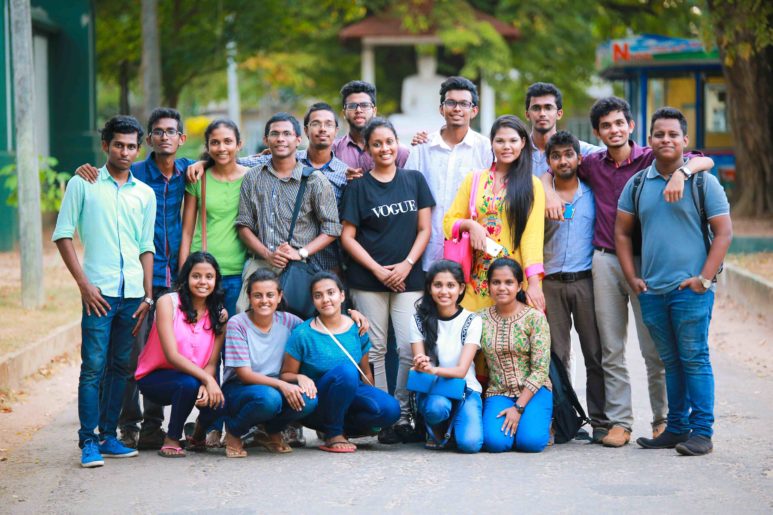
“As an organization, we aim to be in the forefront as youth advocates of the HIV and AIDS pandemic “
Co-founded community organization
Later I gained more public attention for my medical research in the field of HIV/AIDS. Since I wanted to extend my assistance to HIV-positive individuals, in 2015 I co-founded a community organization named “United Youth Consortium (UNYCom)” which was preliminary established with the help of the Joint United Nations Programme on HIV/AIDS (UNAIDS) – Sri Lanka.
As an organization, we aim to be in the forefront as youth advocates of the HIV and AIDS pandemic with special focus on sexual and reproductive health for marginalized populations in the country.
At the moment, we are providing educational aid for the children of HIV-positive parents by conducting voluntary tuition, counselling sessions for HIV-positive people, providing youth volunteers for organizations whose work is based on SRHR and HIV/AIDS and handling documentation and communication for them.
Working in grassroots level
So, working in the grassroots level and dealing with the people who are recognized as inessential to the society, laid the foundation and inspired me to work on behalf of the rights of HIV/AIDS positive individuals. That’s how I started my involvement as a youth activist with special emphasis on advocacy against inadequate education opportunities, health inequality, and in the field of sexual and reproductive health.
Was there any social backlash from your family and friends when you decided to work with people affected with HIV?
Family encouraged me to do what I am passionate about
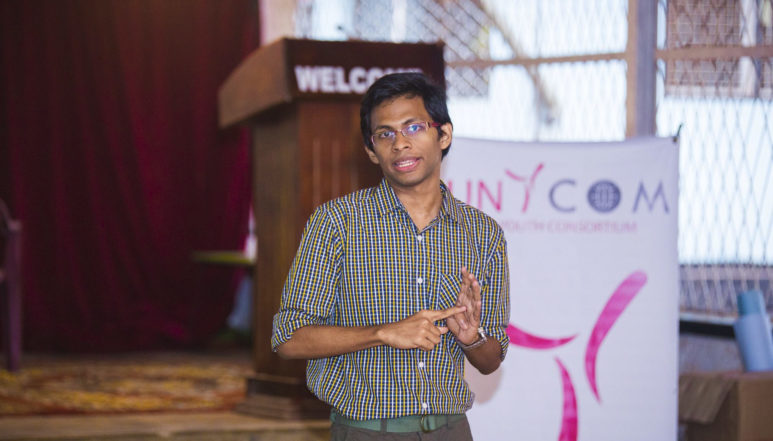
“I strongly believe that the backbone of all my achievements is my alma mater. “
Fortunately, I was inspired and encouraged all the time by my family to do whatever I’m passionate about. Even though they had minor misconceptions as the general population has after I explained them about the scientific and the brutal reality behind HIV/AIDS, they allowed me to continue with my work for the community. At the beginning, some of my friends mocked me about the field that I was into but with time I was able to get their help too.
Did you have a lot of support from Nalanda College?
I strongly believe that the backbone of all my achievements is my alma mater. As I was involved in many scientific and community work in the school, it immensely enhanced my ability to engage in social work. The principal, academic staff and peers always encouraged me when I encountered problems. Nalanda taught me not to develop professionalism at the cost of humanism.
How are people with the disease treated in Sri Lankan society and how bad is the stigma?
Initially, when I stepped in to those slum areas, people looked at me in a weird way. Sometimes, they must have thought that I came to buy drugs or looking for any other illegal activity. When I spoke with HIV-positive people and started working with them, normal people began to treat me the same way as they would treat an HIV-positive individual. Sometimes they scolded me, and discriminated against me as well. I happily accepted their criticisms and harsh attitudes towards me because through that way I was able to feel how hard the life of a HIV-positive person would be. Their indifference always encouraged me to continue my work on behalf of the HIV positive community.
The stories of the affected people are truly pathetic
The stories of the affected people are truly pathetic. The majority of the HIV positive individuals are either sex worker/customer or injection drug user. Most of the kids of HIV positive individuals missed school for many years. Some of them cannot afford education because of their poverty. Talking about subjects like SRH, HIV/AIDS and LGBT is a taboo topic in Sri Lanka. It is often criminalized by the traditional culture of the country. Stigma and discrimination is towering day by day and people publicly express disgust about such topics. Most of the time, media networks publicize news without sensitizing the people on issues such as rape, abuse or HIV/AIDS.
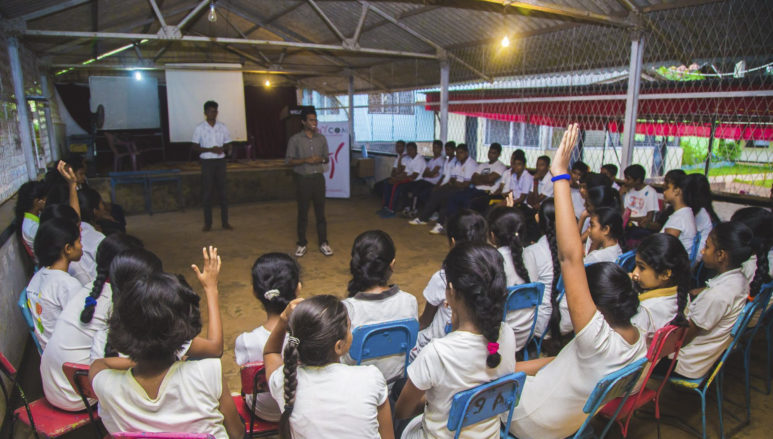
” I knew there are thousands of school children who want to study and experience with new ideas, innovate and overcome boundaries to satisfy their intellectual curiosity.”
Tell us a why you formed ‘ideanerd Sri Lanka’ to promote innovation?
It was in 2010 that I moved into the field of medical research. Until then it was not in a developed situation. Even though Sri Lankan high school students were interested in carrying out scientific or medical research, they were not motivated to create a culture of medical research in the country.
With my first research, I was able to lay the foundation of a culture of medical research. I feel that it is one of the main contributions that we, as the youth of the country, could contribute towards scientific or medical research to benefit the country. The biggest hurdle facing me was the absence of a medical research culture for non-degree holders, especially for students. What I understood was that if I have to strive hard towards laying a platform in this field, first I had to overcome this challenge on behalf of all the other students willing to contribute towards the advancement of this field.
Meantime, I knew there are thousands of school children who want to study and experience with new ideas, innovate and overcome boundaries to satisfy their intellectual curiosity.
But unfortunately, that time there were no proper assistance for those kids to come up with innovative ideas. In such a situation, my sole intention was to help children like me to establish a research and innovative culture.
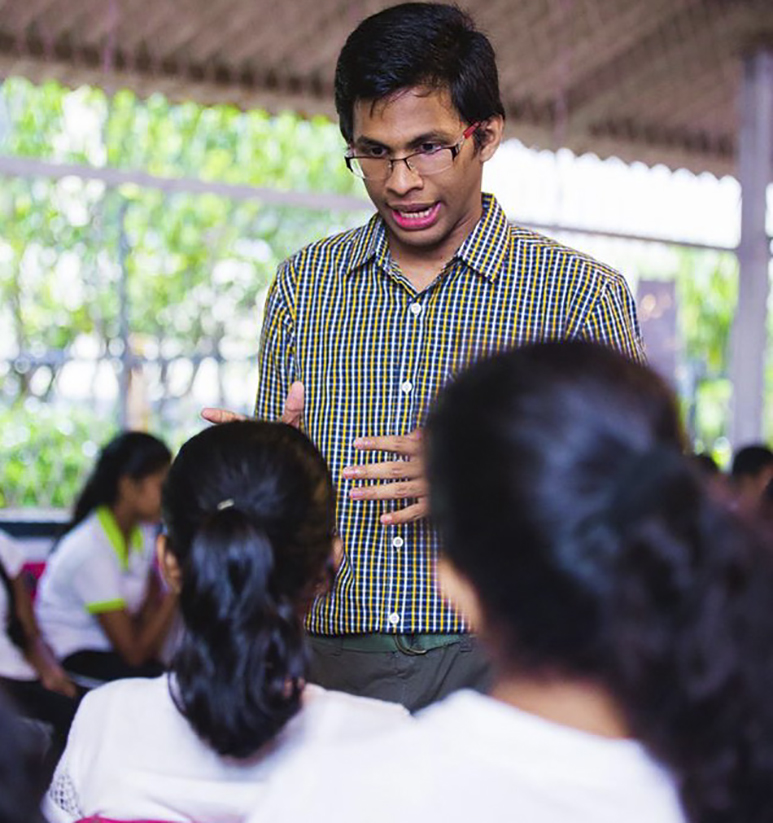
“The competition among children for local higher education is increasing and because of that students are reluctant to participate in any extra-curricular activity. They are reluctant to innovate or help solve the problems the country is facing. In such situations, ideanerd strongly believes that, adapting innovation in education can help in building creativity and better abilities to solve problems. “
Enhancing the innovative thinking
With this intention, in 2012 I founded “ideanerd Sri Lanka (ideanerd SL)” and the main focus of this initiative is to enhance the innovative thinking and creativity among the school children and to establish a sustainable and viable scientific research and innovation/invention culture for a greater benefit of the country.
The competition among children for local higher education is increasing and because of that students are reluctant to participate in any extra-curricular activity. They are reluctant to innovate or help solve the problems the country is facing. In such situations, ideanerd strongly believes that, adapting innovation in education can help in building creativity and better abilities to solve problems. The ideanerd SL initiative for research and innovation in science has been nurturing the real spirit of innovation among students in Sri Lanka since 2012.
According to what you believe, can Sri Lanka be a hub for innovation? Apart from health research, what other areas of innovation can Sri Lanka emulate?
The answer is simple. Sri Lankan’s have the ability and the capacity to make the country a hub for innovation. However, to be honest, it will be a really hard task with the conventional attitudes and ongoing political scenarios. And apart from health research, definitely we can reach to the top in the fields of computer and mechanical engineering as we see a lot of inspiring youngsters develop their innovations in those two fields.
Anything else you would like to say?
The Queen’s Young Leaders Programme has announced 60 Queen’s Young Leaders Award Winners from across the Commonwealth to honour and recognize their pioneering efforts to make a difference in their communities. I am delighted to be chosen as one of 60 young people from around the Commonwealth as a Queen’s Young Leader for the work I do in my community. I really look forward to use this recognition to continue with my work on behalf of HIV/AIDS community in order to write a new chapter in the history of my country.

